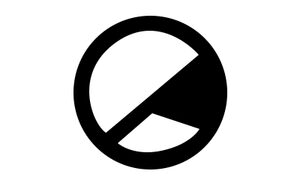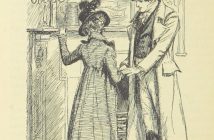Sylvia Plath’s The Bell Jar perhaps isn’t everyone’s first choice when it comes to reading books which help the transition to university life. I mean, for starters it’s loosely based on a period of Plath’s own life which saw her consumed with depression, isolation and alienation, and involved multiple suicide attempts, all pretty gruesome and harrowing to read about for the best part of 250 pages. Nevertheless, The Bell Jar isn’t a book about being blanketed with depression; it’s a book about the hope that surfaces as a result of it. It’s a book about coming to terms with yourself, and most importantly it’s a book about being okay with where you are right at this moment.
The book introduces Esther Greenwood: a plucky, independent young woman from Boston, as she gains a prestigious summer internship at a prominent magazine in New York City before gradually spiralling into a deep depression after becoming dissatisfied with the lifestyles and expectations of women her age, and being rejected for her dream creative writing course. There is no university involved, nor are there many chances to gage Esther’s sense of transitioning from one step of education to another, yet nonetheless, the book is all about exactly that: transition. No doubt it’s a dark book; you won’t feel exuberant or elated or even happy with the book’s somewhat ambiguous ending. Turning that last page, however, will – and this is a promise – make you feel energised and full of all these thoughts and ideas and realisations you never had or even knew you could have before you turned the first page. If any book can age you five, ten, fifteen years – it’s The Bell Jar.
I first picked up The Bell Jar nearing the end of Year 12. By the time the move to university had come, I had read it six more times. The life of Esther Greenwood so completely mirrored my life, and everyone else around me, not in the sense that we all spiral into depression, get sent to a mental institution, date both an interpreter and a sufferer of tuberculosis, and come out the other side with only a few cuts and bruises to show for it, but more in the sense that the struggles she faces, the transitions she was made to go through, saw her go through so much but she made it through alive. This is, I’m sure, where we’re all at now – whether having already faced a year or two of uni, or having to face it for the first time.
Netflix original, Master of None, used one of its passages to illustrate the struggles of transitioning and being forced to grow up and make choices. About a third of the way into the book, Esther wonders:
“I saw my life branching out before me like the green fig-tree in the story. From the tip of every branch, like a fat purple fig, a wonderful future beckoned and winked. One fig was a husband and a happy home and children, and another fig was a famous poet and another fig was a brilliant professor, and another fig was Ee Gee, the amazing editor, and another fig was Europe and Africa and South America, and another fig was Constantin and Socrates and Attila and a pack of lovers with queer names and off-beat professions, and another fig was an Olympic lady crew champion, and beyond and above these figs were many more figs I couldn’t quite make out. I saw myself sitting in the crotch of this fig-tree, starving to death, just because I couldn’t make up my mind which of the figs I would choose. I wanted each and every one of them, but choosing one meant losing all the rest”
Sound familiar?
It’s a coming of age book, undoubtedly, a book of the most euphoric realisations and the darkest epiphanies. It’s a book about figuring everything out. A book about growing up and leaving things behind, finding new things to love and to hate and everything in between. But most of all, and by far most importantly, it’s a book about being completely okay with struggling and being unable to decide which fig you want, because eventually it’s going to warm up, slow down and you’ll be okay.






